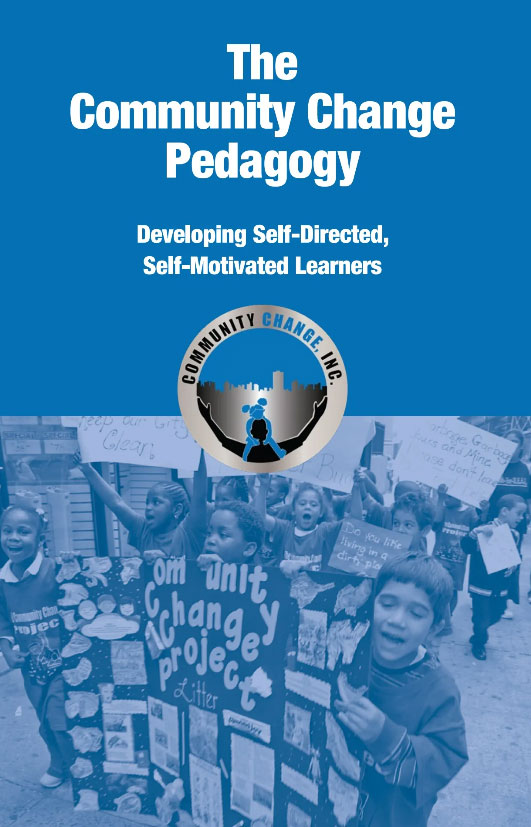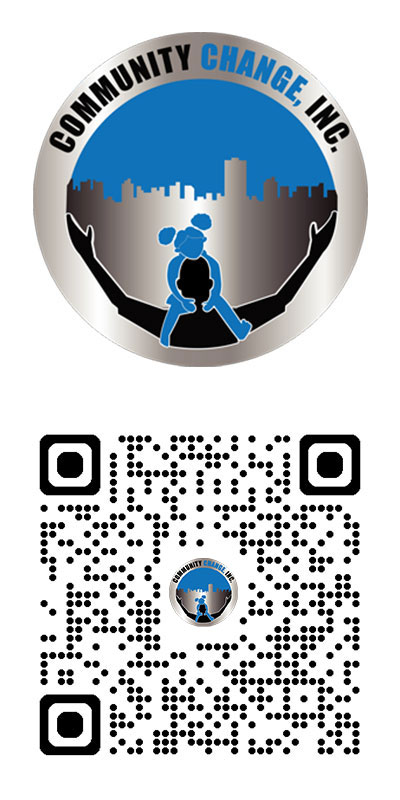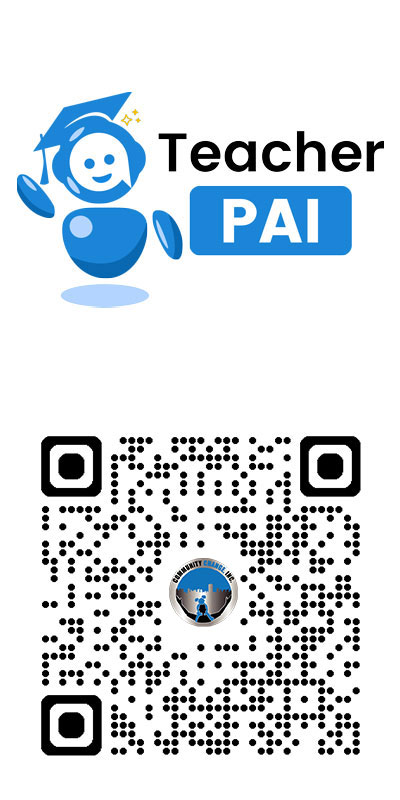
The Community Change Pedagogy is our educational approach that cultivates autodidactic (self-directed and self-motivated) learners by blending academics, personal interests, and real-world content with classroom, school and community learning experiences.
The framework of this approach features three key elements: questions for inquiry; references for research and information; and exercises for creative explorations and expressions. This framework helps to deliver an engaging and effective learning experience. The recommended minimum frequency for implementing this pedagogy is twice weekly over 14 weeks, which is roughly one semester.
Each lesson begins with a welcome and icebreaker to introduce the focus question. The lesson then progresses with exploratory and expression exercises that engage students with various references and encourage them to creatively apply what they have learned. In the exploratory exercise, students use articles, videos, and guest speakers to explore and analyze information related to the focus question. Following this, the expression exercise allows students to creatively share their findings from the references through activities they enjoy. Each lesson concludes with a review and reflection segment, allowing students to summarize their learning experience and to share their feedback.
The Community Change Pedagogy includes nine project-based units or models that organize students’ exploration around specific themes:
- CareerVisions for career exploration.
- Community Change for civic engagement.
- Foodpreneurs for culinary arts.
- Legacy for cultural education, DBEI and CRE.
- The Black Experience for Black Studies, DBEI, and CRE.
- The Latino Experience for Latino Studies, DBEI, and CRE.
- Mastery for 21st-century skills.
- Money Move$ for financial literacy.
- Peace for conflict management, relationship education, and restorative practices.
Each unit promotes personal growth, career explorations, cultural awareness and social responsibility.
Each unit includes one special event and one action project. Special events are presentations or performances where students creatively showcase the things that they learned to an audience of their peers, family, and community members. During special events, community members are the audience, observing and appreciating the students’ work. In contrast, action projects allow students to address real-world challenges by getting community members directly involved in planning and implementing an intervention to a local issue. This collaborative approach ensures that community members are active participants, working with students to develop and execute an action plan that combats neighborhood concerns.
The Community Change Pedagogy makes education engaging and relevant. It encourages students to take ownership of their learning while developing problem-solving, research, and management skills. The consistent and continuous application of the Community Change Pedagogy with fidelity allows for the cultivation of self-directed, autodidactic learners.






